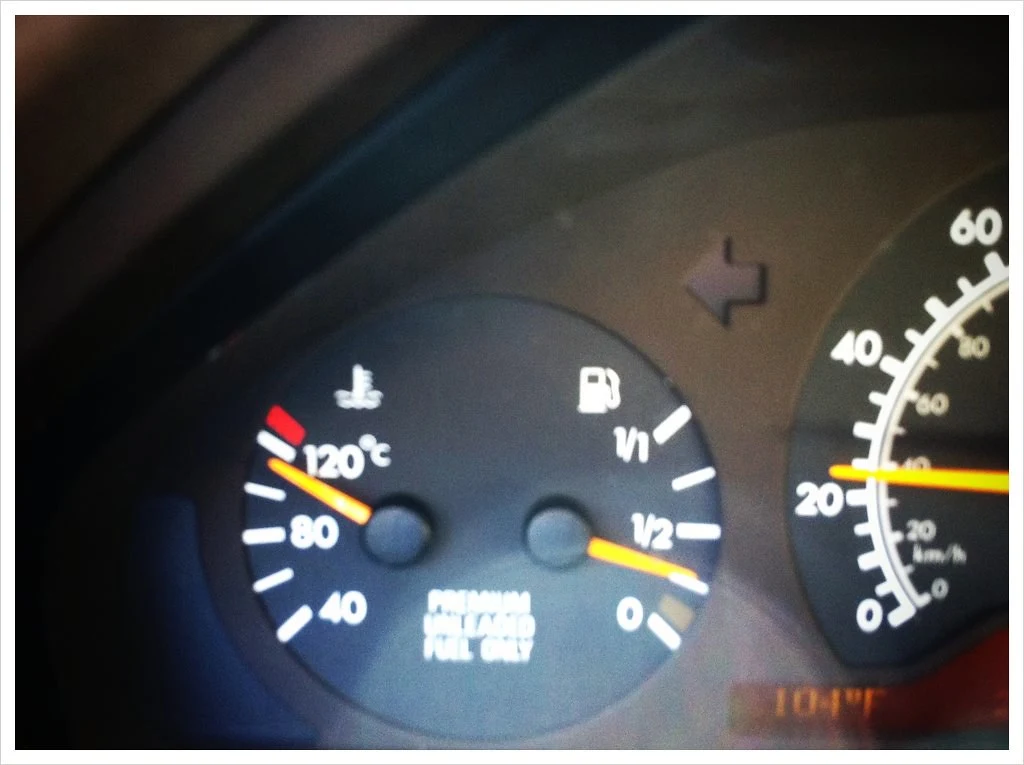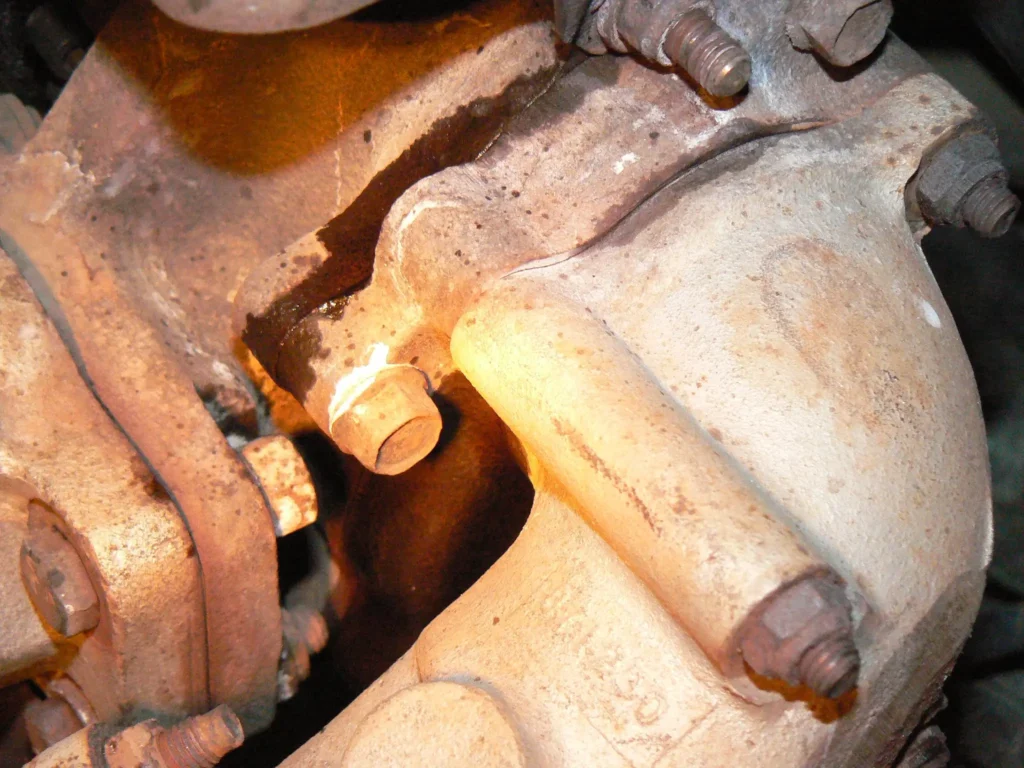You’re driving along on a busy highway when suddenly your temperature gauge starts climbing into the red zone. Steam begins billowing from under your hood, and your heart sinks. Car overheating is one of the most serious issues you can face as a driver, potentially leading to expensive engine damage if not addressed quickly.
But what exactly causes a car to overheat, and more importantly, what can you do about it?
In this comprehensive guide, we’ll walk you through everything you need to know about car overheating – from common causes to immediate actions you should take, and how to prevent this problem in the future.
Understanding Your Car’s Cooling System
Before diving into specific causes of overheating, it’s essential to understand how your car’s cooling system works. Your engine operates at extremely high temperatures – typically between 195 and 220 degrees Fahrenheit. The cooling system’s job is to maintain this temperature within safe limits.
Here’s how the system works:
Your engine’s cooling system consists of several key components working together:
- The radiator, which dissipates heat from the coolant
- The water pump, which circulates coolant through the engine
- The thermostat, which regulates coolant flow
- Various hoses that transport coolant throughout the system
- Coolant (or antifreeze) itself, which absorbs and transfers heat
- The radiator fan, which helps cool the radiator when the car isn’t moving

Common Causes of Engine Overheating
1. Low or Contaminated Coolant
The most frequent cause of engine overheating is simply not having enough coolant in the system. Coolant levels can drop due to:
- Leaks in the cooling system
- Natural evaporation over time
- Improper maintenance
- Internal engine problems
Recommended Coolants (Check it Now)
2. Failing Water Pump
The water pump is the heart of your cooling system. When it fails, coolant doesn’t circulate properly, leading to rapid overheating. Signs of a failing water pump include:
- Whining noises from the front of the engine
- Coolant leaks near the center of your car
- Steam coming from the radiator
- Fluctuating temperature gauge readings
3. Thermostat Malfunction
Your car’s thermostat acts like a valve, controlling coolant flow based on engine temperature. When it fails, it often stays closed, preventing coolant from circulating properly. This typically causes:
- Sudden and rapid overheating
- Temperature gauge readings that jump from normal to hot quickly
- Inconsistent heating system performance
4. Radiator Problems
Radiator issues can take several forms:
- Blocked radiator cores
- Physical damage to radiator fins
- Internal corrosion
- Leaking radiator caps
- Clogged radiator passages
5. Cooling Fan Failure
Modern cars rely heavily on electric cooling fans to keep the engine temperature stable, especially when idling or driving in slow traffic. When these fans fail:
- The car may overheat while standing still but cool down when moving
- The temperature rises in stop-and-go traffic
- You might notice the absence of fan noise when the car is hot
6. Head Gasket Issues
A blown head gasket is one of the most serious causes of overheating. This critical component seals the engine block and cylinder head, keeping coolant and oil separated. When it fails:
- Coolant can leak into engine oil (creating a milky appearance)
- White exhaust smoke becomes visible
- The engine may overheat even with full coolant levels
This would be an excellent place to add Amazon links for head gasket testing kits and temporary sealant products, though emphasizing that professional repair is ultimately necessary.
Immediate Actions When Your Car Overheats
When you notice your car overheating, take these steps immediately to prevent serious engine damage:
- Turn Off the AC and Turn On the Heat
- Switch off your air conditioning immediately
- Turn the heater on full blast (this helps draw heat away from the engine)
- Open your windows for comfort
- Pull Over Safely
- Find a safe spot to stop as soon as possible
- Turn off the engine
- Wait at least 30 minutes before opening the hood
- Check Coolant Levels (Once Cool)
- Never remove the radiator cap while hot
- Look for visible leaks
- Check the coolant reservoir level
Here’s an ideal spot to recommend emergency roadside kits and basic tool sets from Amazon that every driver should keep in their car.
How to Diagnose an Overheating Engine
Follow this systematic approach to identify the cause of overheating:
- Visual Inspection
- Check for visible leaks
- Inspect hoses for cracks or bulges
- Look for steam or unusual smells
- Coolant System Check
- Verify coolant levels
- Look for coolant color and condition
- Test coolant concentration
- Operational Checks
- Monitor when overheating occurs (idle vs. driving)
- Listen for unusual noises
- Watch temperature gauge patterns
Recommended OBD2 Scanner (Check it Now)
Prevention Tips and Regular Maintenance
Prevent overheating problems with these regular maintenance steps:
- Regular Coolant Service
- Flush and replace coolant according to manufacturer schedule
- Use the correct coolant type
- Maintain proper coolant concentration
- System Inspection
- Check hoses and belts regularly
- Inspect the radiator for debris or damage
- Test the radiator cap annually
- Professional Maintenance
- Follow recommended service intervals
- Address small problems before they become serious
- Keep detailed maintenance records
Frequently Asked Questions
Q: How do you fix a car that overheats?
A: The fix depends on the cause but typically involves:
- Addressing coolant leaks
- Replacing failed components
- Performing necessary system maintenance Always start with a proper diagnosis to avoid unnecessary repairs.
Q: Why is my car overheating but the coolant is full?
A: This could indicate:
- A failed thermostat
- A malfunctioning water pump
- A blown head gasket
- A blocked radiator Professional diagnosis is recommended in these cases.
Q: What is the most common cause of a vehicle overheating?
A: Low coolant level is the most common cause, often due to leaks in the cooling system. Regular maintenance and prompt repair of leaks can prevent most overheating issues.
Q: What are three simple things to check if your car is overheating?
A: Check these three things first:
- Coolant level and condition
- Visible leaks or damaged hoses
- Proper operation of the cooling fan
Conclusion
Engine overheating is a serious issue that requires immediate attention. By understanding the causes and taking proper preventive measures, you can avoid most overheating problems. If your car does overheat, knowing the proper immediate actions can save you from expensive engine damage.
Remember, while some overheating issues can be addressed with DIY solutions, others require professional attention. When in doubt, consult a qualified mechanic to protect your investment in your vehicle.

